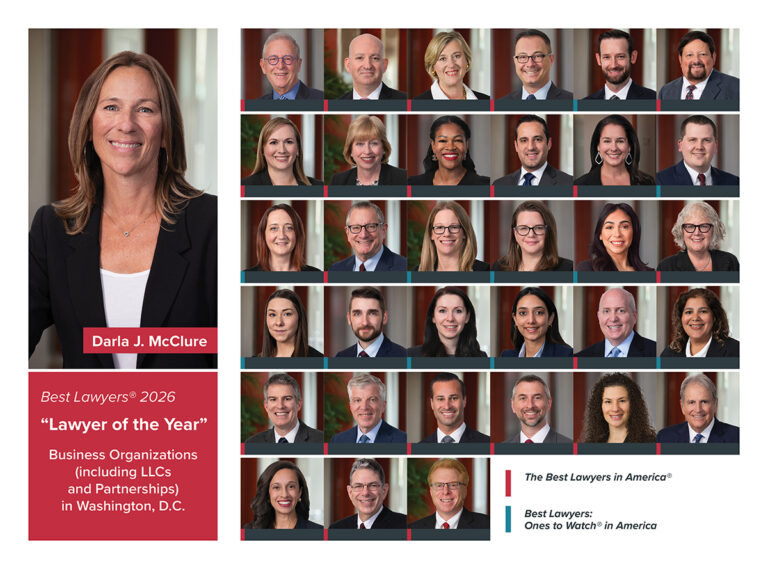July 24th, 2025
Dating In the Workplace: Essential Strategies for HR
Posted in: Employment Law Tagged: Darla J. McClure
Author: Darla J. McClure

Workplace relationships are an undeniable reality in today’s professional environment. According to a recent Forbes survey, 60% of adults report having had a workplace romance. As employees spend increasingly more time at work, romantic connections between colleagues continue to flourish despite potential complications.
While organizations cannot and should not attempt to control their employees’ personal lives, workplace relationships can create significant legal, operational, and cultural challenges that require careful management.
It should be against company policy for managers to date or pursue romantic relationships with individuals within their reporting structure, as these relationships create inherent power imbalances that can lead to serious legal and ethical complications, regardless of whether the relationship appears consensual. Sexual harassment represents one of the most serious risks associated with workplace relationships. Beyond harassment concerns, workplace relationships can create claims of favoritism, retaliation issues, negative impacts on work performance, and decreased team morale.
Organizations can work with an employment law attorney to draft proper workplace relationship policies tailored to their specific needs and in compliance with federal, state, and local laws. The following strategies can work hand in hand to provide clarity, protection, and professional guidelines that benefit both employers and employees.
Establish Clear Relationship Policies in Your Employee Handbook
The foundation of effective workplace relationship management begins with comprehensive policies clearly outlined in your employee handbook. These policies should explicitly address what types of relationships are permitted, prohibited, or require special consideration within the organization.
An employment law attorney can work with you on the best way to include specific guidance on professional behavior expectations, such as maintaining appropriate workplace conduct regardless of personal relationships, avoiding public displays of affection, and ensuring that personal relationships do not interfere with work performance. Most importantly, your handbook should clearly communicate the procedures employees must follow when workplace relationships develop, including disclosure requirements and the steps the organization will take to manage potential conflicts.
Implement Transparency and Disclosure Requirements
Organizations can require employees to disclose romantic relationships to the human resources department, particularly when relationships involve employees in the same department, reporting structure, or areas where conflicts of interest (or the perception there of) may arise.
With a formal disclosure process in place, HR can assess potential risks and implement appropriate safeguards before problems develop.
Utilize Love Agreements for Consensual Relationships
Once a relationship has been disclosed, some organizations are turning to “love agreements” as a proactive risk management tool. Your employment law attorney can draft a contract that formally acknowledges a consensual romantic relationship between employees, confirms its voluntary nature, and establishes clear workplace guidelines for the individuals involved. This document serves as both a protective measure for the organization and a framework for professional conduct for the employees.
An effective love agreement may include the following key components:
Acknowledgment of Consensual Nature: Both parties must formally acknowledge that the relationship is entirely consensual and voluntary, with neither party feeling pressured or coerced into participating.
Employment Independence: The agreement should explicitly state that the relationship was never a condition or term of employment, and that no employment benefits or opportunities were promised or provided in exchange for the relationship.
Professional Conduct Standards: Participants must agree to follow the organization’s non-public display of affection (PDA) policies or maintain an anticipated level of discretion while at work, ensuring that personal relationships do not disrupt the professional environment.
Performance Commitment: Both parties must commit that their personal relationship will not negatively affect their job performance, decision-making abilities, or professional responsibilities.
Policy Compliance: The agreement should address how the relationship may impact future transfers, promotions, or work assignments, particularly if organizational policies prohibit employees from working in the same department or within supervisor/subordinate relationships.
Legal Implementation and Success
Organizations implementing these three strategies should work closely with an employment law attorney at Stein Sperling throughout the process. Legal counsel can help evaluate workplace considerations and ensure compliance with legal requirements.
Employment attorneys can also provide training for HR personnel on implementing these policies, handling disclosures appropriately, and recognizing potential legal issues before they escalate into costly litigation.
The combination of clear handbook policies, transparent disclosure processes, and comprehensive love agreements creates a robust framework for managing workplace relationships while protecting all parties involved.







